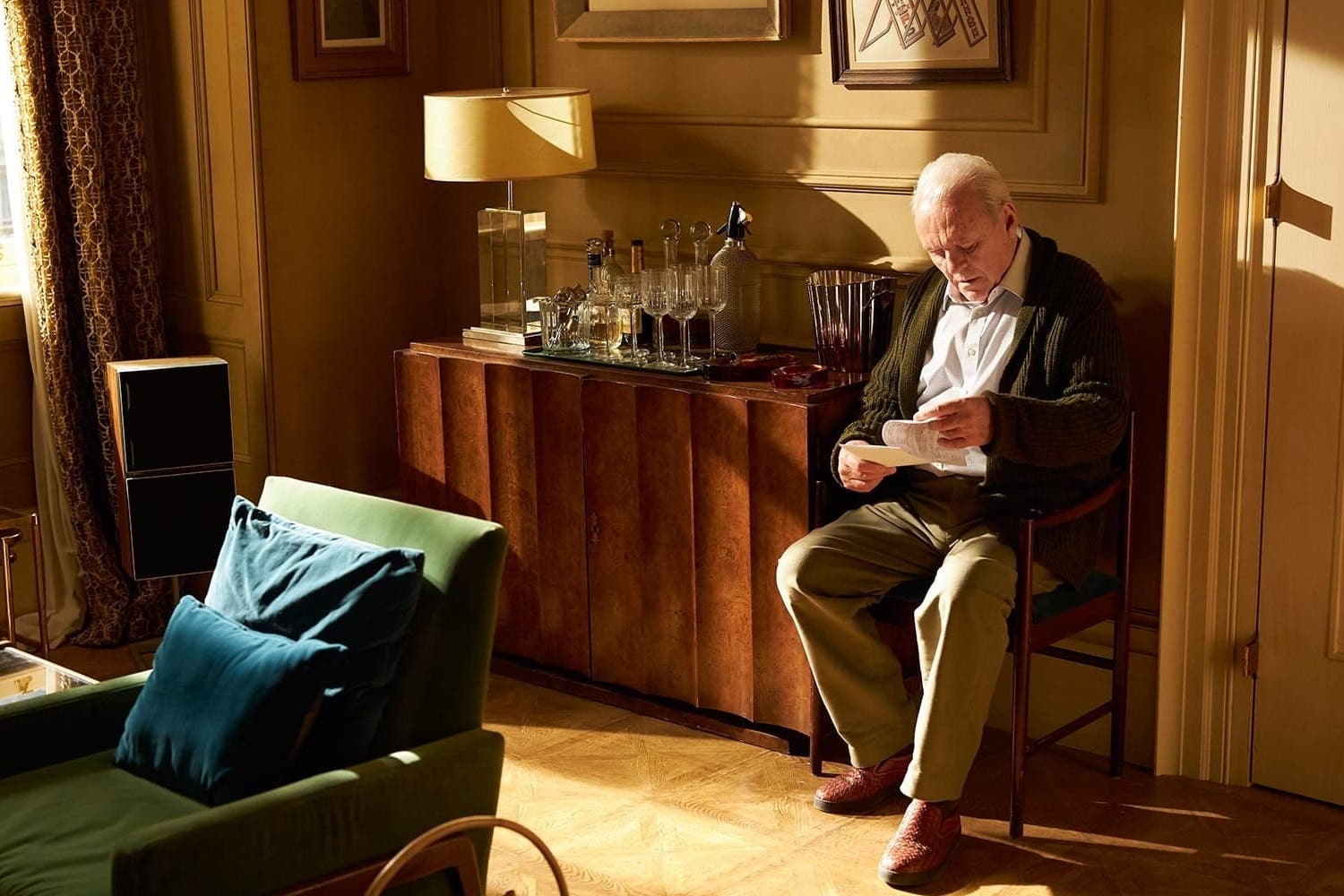Few films in cinema have managed to match the heart-wrenching portrayal of mental decline and dementia like Florian Zeller’s “The Father.” Starring Anthony Hopkins and Olivia Colman, “The Father” revolves around Hopkin’s character, Anthony, and his struggle to maintain a grip on reality as he succumbs to the debilitating effects of elderly dementia.
Although the film’s synopsis may give the impression of a slow, depressing drama, which it certainly is, “The Father” also manages to be both thrilling and unapologetically realistic. Within the first 20 minutes, the movie will have viewers choking back tears and swallowing lumps in their throats.
The film, which was released in 2020, opens in Anthony’s flat as he meets with his daughter Anne after yet another incident with a caretaker. From the beginning, it’s clear that Anthony’s struggle with dementia has deeply affected both him and his daughter. Throughout the film, both actors manage to display a look of fatigue and sadness that resonates with anyone who has been through similar situations.
While his daughter is attempting to discuss the need to find a new caretaker, Anthony is fixated on finding his watch, which he insists the previous caretaker stole from him. This becomes a point of contention between the two until Anthony manages to find the watch and nonchalantly shrugs off his previous accusations of theft.
The two eventually sit down together so that Anne can inform her father that she’ll be moving to Paris with a man she met. Anthony is confused by this revelation, as he believes that Anne is married, until Anne explains to him that she’s been divorced for five years. This leads to an emotional scene in which Anthony begins to worry about what will happen to him if his daughter leaves. This opening scene is an encapsulation of the relationship between Anthony and his daughter throughout the film and serves to prepare the audience for the emotional journey they’re about to embark on.
After Anne informs Anthony of her move, he’s befuddled to find a strange man sitting on a couch in his flat. The man tells Anthony that it is, in fact, his flat, and that Anthony lives with him and Anne. Anthony’s confusion is exacerbated when Anne returns from the grocery store as a completely different person. Both the strange man and Anne behave as if nothing is out of the ordinary, greatly distressing Anthony as his grip on reality seems to be falling further and further away from him.
Herein lies the true genius of the film. As the viewer follows the relationship between Anthony and his daughter, they are thrust into the subjective reality of Anthony’s mental decline. The majority of the scenes are shown through his perspective, turning him into an unreliable narrator. This creates an incredibly captivating dynamic in which the viewer is forced to determine what is real and what is simply the hallucinations of a character who at times seems perfectly lucid.
Nearly every scene in the flat shows a different arrangement of furniture, colors and people. This tactic serves to reflect Anthony’s own subjective experience of reality and — more importantly — to place the viewer in Anthony’s shoes. While watching the film, there’s no doubt that audiences will feel the eerie sensation of finding a complete stranger in what is supposed to be your home.
Additionally, the film’s method of playing with subjectivity creates a thrilling experience that would be absent from a typical drama. For example, there are scenes that force viewers to question the legitimacy of previous moments in the film, leaving room for speculation and anticipation for what’s to come next.
The few moments of objective reality in the film come from scenes in which Anthony is absent. However, these points are few and far between and can even then still be misleading or unreliable. The end result from this mix of subjective and objective storytelling is a captivating portrayal of a struggle with both dementia and familial relationships.
A running theme in “The Father” is Anthony’s condescending relationship with his daughter. Throughout the film, he repeatedly undermines her decisions, fractures her marriage and makes his preference for her sister obvious. It’s clear that these factors weigh heavily on Anne, with multiple scenes portraying her internal struggles in a sympathetic light. She’s shown longingly staring at a happy couple through her window, perhaps contemplating what her life would be like if not for the burden of her father’s disease. This is taken to the extreme in a scene that can only be described as the darkest reflection of her fantasy to escape the pain both she and her father are in.
“The Father” isn’t an exercise in inspirational cinema, and it certainly isn’t a film that exudes feelings of optimism — that’s not its purpose. However, what it does exceedingly well to the point of perfection is portray the struggle with acceptance and the inevitability of impermanence. Anne constantly strives for her father’s approval as well as her husband’s. Anthony’s preference for Anne’s sister is an obvious sore spot for her, as she struggles to care for a father who becomes increasingly disparaging toward her because of his disease.
Anthony’s own struggle with dementia is symbolized through his constant obsession with his watch. The watch seems to bring comfort to a nearly constantly distressed Anthony, who finds solace in its presence and panic in its absence. The dynamic between Anthony and his watch can be seen as a symbolic fight to maintain a sense of time and order on Anthony’s part. This subtle representation is just one of the many bread crumbs the film leaves for viewers to gather together.
Ultimately, while “The Father” is far from uplifting, it is certainly an unforgettable viewing experience filled with amazing, award-winning performances by both Hopkins and Colman. A word of caution to anyone who has dealt with the issues portrayed in this film: It may hit too close to home for many, and it can be downright heartbreaking for others. With that being said, “The Father” is without a doubt worthy of the early nominations the film and its actors have received for the upcoming Academy Awards ceremony and will leave viewers in awe and with sweaty eyes by the time it’s over.

















